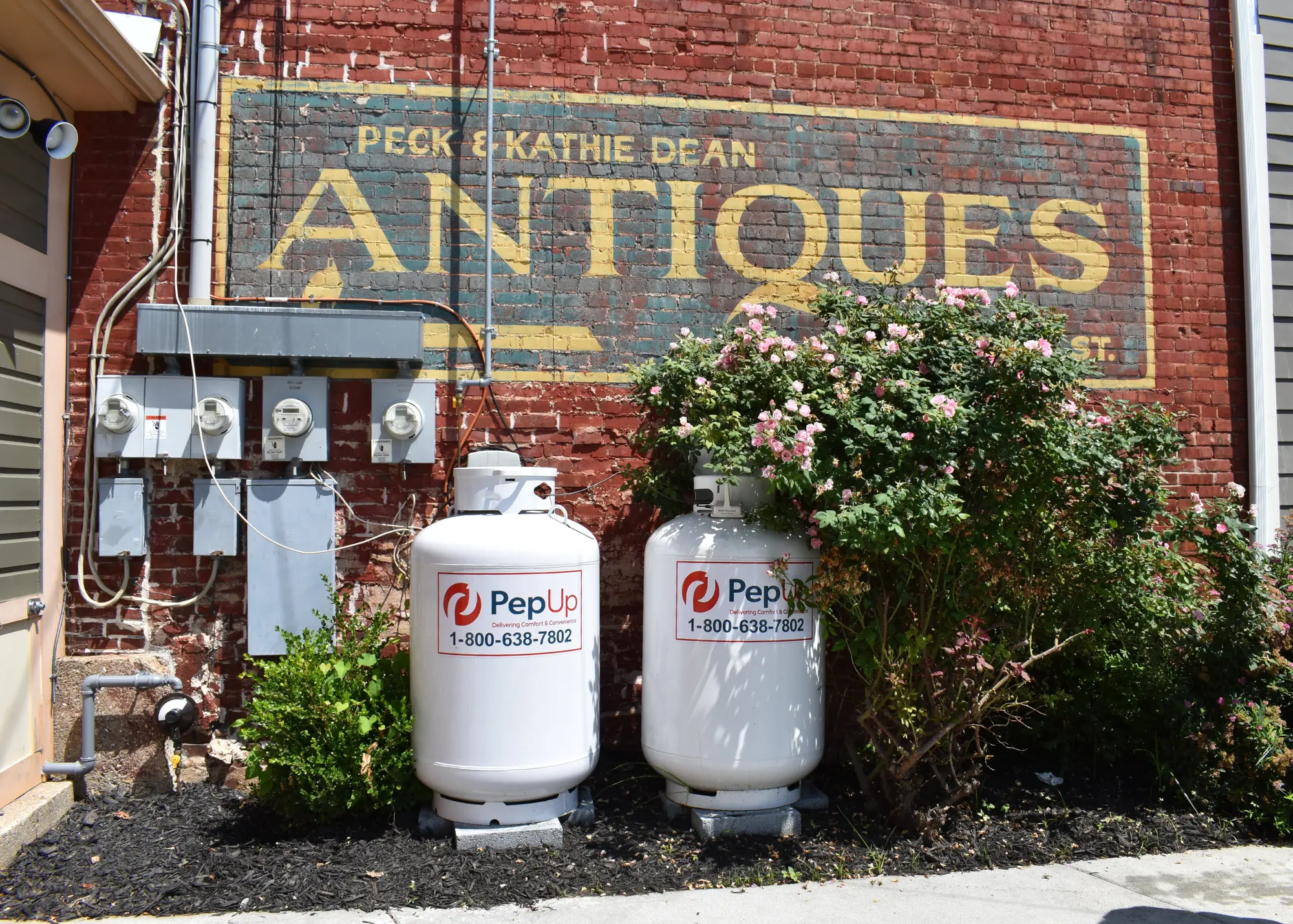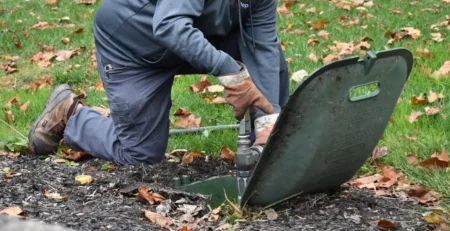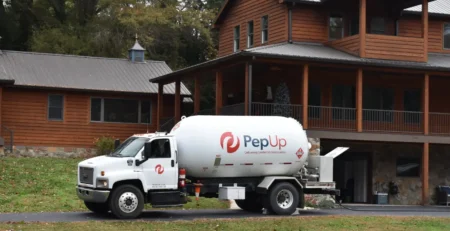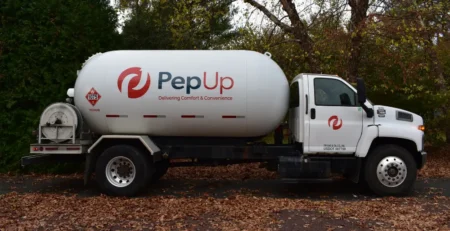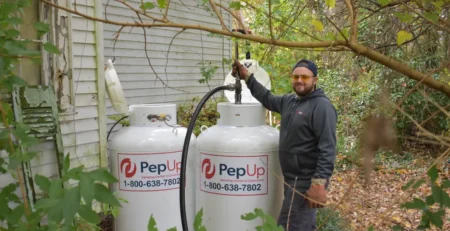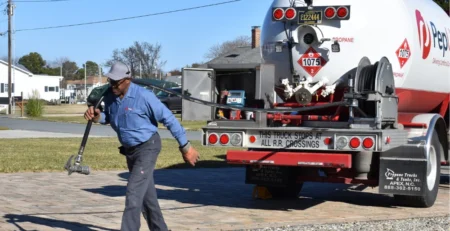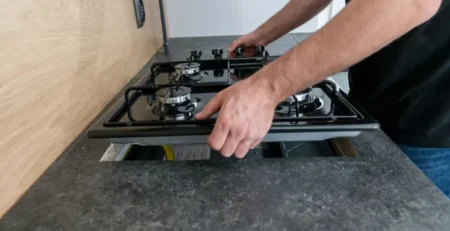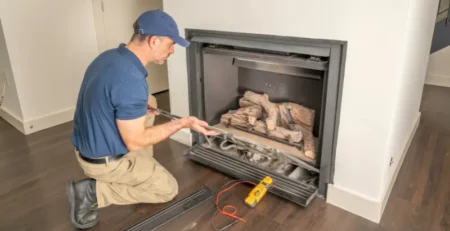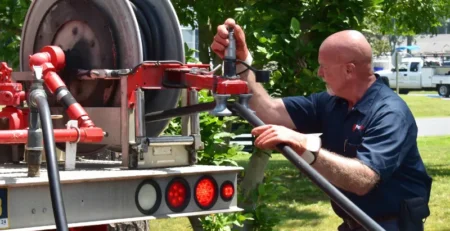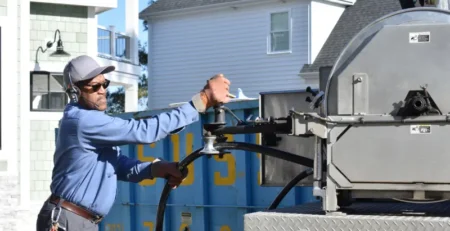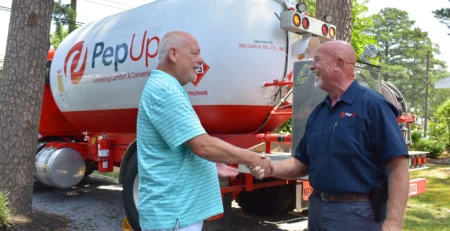How do we know when old propane tanks need replacing?
PepUp technicians and delivery drivers have seen their fair share of propane tanks in all shapes, sizes, and conditions. Our team is trained to quickly spot the red flags that indicate a tank has reached the end of its life.
When you own your propane tank and it isn’t regularly monitored by a local propane provider within a lease agreement, it’s essential to understand the signs that suggest it’s time to retire your old tank.
5 signs it's time to replace your old propane tank
One of the most obvious signs your propane tank is ready to be retired is visible rust and corrosion. Tanks that are exposed to the elements, particularly in high-humidity coastal environments like our local area, can deteriorate more rapidly than those in arid climates. Salt air and moisture can expedite the rusting process, compromising the tank’s integrity and safety.
Inspect your tank regularly, paying close attention to the bottom where the tank could stay wet the longest. Ensure there’s proper drainage around the tank to prevent water from pooling.
1. Visible rust and corrosion
PepUp technicians and delivery drivers have seen their fair share of propane tanks in all shapes, sizes, and conditions. Our team is trained to quickly spot the red flags that indicate a tank has reached the end of its life.
When you own your propane tank and it isn’t regularly monitored by a local propane provider within a lease agreement, it’s essential to understand the signs that suggest it’s time to retire your old tank.
Expert Tip: When you live close to the shore, it’s a good practice to regularly hose down your tank to minimize salt exposure that can lead to faster oxidation.
2. Leaks or the smell of gas
The presence of gas leaks is a serious issue that requires immediate attention. If you detect the smell of gas (which is often described as a “rotten egg” odor due to an additive in otherwise odorless propane), this could indicate a leak. Leaks can be caused by several factors, including corrosion, cracks, or worn-out valves and fittings.
Regularly check valves and regulators for signs of wear and tear, especially if you own a tank that is starting to show signs of aging and corrosion.
Expert Tip: Put safety first. If you suspect a leak, turn off the tank’s main supply valve, leave the area, and contact PepUp immediately at 800-638-7802. Do not try to locate the source of the leak yourself.
3. Dents and physical damage
Propane tanks are built to withstand a fair amount of wear, but significant dents or physical damage can compromise their safety. Such damage can result from impacts during transport or installation, weather events, or even careless mowing or parking.
If your tank has been physically damaged, it’s crucial to have it assessed by a professional to determine whether it can still be safely used.
Expert Tip: Conduct a thorough inspection of your tank following any severe weather event or accidental bump to ensure there are no new dents or damage.
4. Recertification failure
Propane tanks are subject to regular inspections and recertifications to ensure they are still safe for use. The original certification date is usually stamped on the tank’s tag.
If your tank’s tag is no longer legible, you’ll need to replace your tank.
Expert Tip: Any propane provider should verify your propane tank’s current certification and/or recertify it before filling it. If your old propane tank is unsafe, it will be “red-tagged” and no company will fill it. Your PepUp driver will let you know if your tank needs replacing.
5. Poor performance and unreliable operation
Another sign that it might be time to retire your old propane tank is if you’re experiencing inconsistent performance. If you notice that your appliances are not operating efficiently, or the tank pressure seems to fluctuate (especially during extreme temperatures), these could be indications of internal issues.
Newer tanks come with more advanced safety features and monitoring systems that can enhance performance and reliability.
Expert Tip: While some performance issues might be related to other components of your propane system or even low propane levels, a consistently unreliable tank should be evaluated by a PepUp service technician.
Assessing old underground propane tanks
Underground propane tanks have their own set of unique considerations. These tanks are particularly susceptible to rust and corrosion due to soil moisture, especially in areas with high water tables or frequent rainfall. This is why, at PepUp, we recommend aboveground tank sets and offer tips for where to put your propane tank for safe operation.
Underground tanks often use cathodic protection systems to prevent corrosion. Regularly check and maintain these systems. Ensure the area around the underground tank is well-drained and free from excessive vegetation that can trap moisture.
Without being able to visually inspect your underground propane tank, you’ll need to rely on regular inspections by propane delivery drivers or propane company service technicians. Of course, anytime you smell propane or have inconsistent pressures and performance, take steps to make your tank safe and call in the experts to find the source of the problem.
Leasing a propane tank ensures reliability
Understanding when it’s time to retire your old propane tank can save you from potential safety hazards and ensure that your propane system operates efficiently. Regular inspections and maintenance, especially for tanks in challenging environments like coastal areas, can extend the life of your tank. Knowing the signs that it’s time to replace an old propane tank is crucial, especially if you own your tank.
Leasing a propane tank from PepUp guarantees that you won’t have to worry about your tank getting old and developing a leak or failing recertification. When our customers’ leased tanks start to show age, we repair or replace them to make sure they continue to function reliably through every season.
If you have any concerns about the condition of your propane tank, whether above or underground, don’t hesitate to reach out to a qualified professional. Your safety and peace of mind are well worth the investment in a reliable propane tank and system.

Meet PepUp Contributor and Delivery Driver, Joe Travers
Joe Travers, delivery driver in Galena. Joe went to the Florida Institute of Technology and graduated with Bachelors of Science in Construction Management and Business Administration. After that, he was an over the road trucker for rail transport out of Wisconsin and Chicago for several years. Eventually, he moved back to Delmarva and hauled grain hoppers for a local farmer before landing his current position at PepUp.

